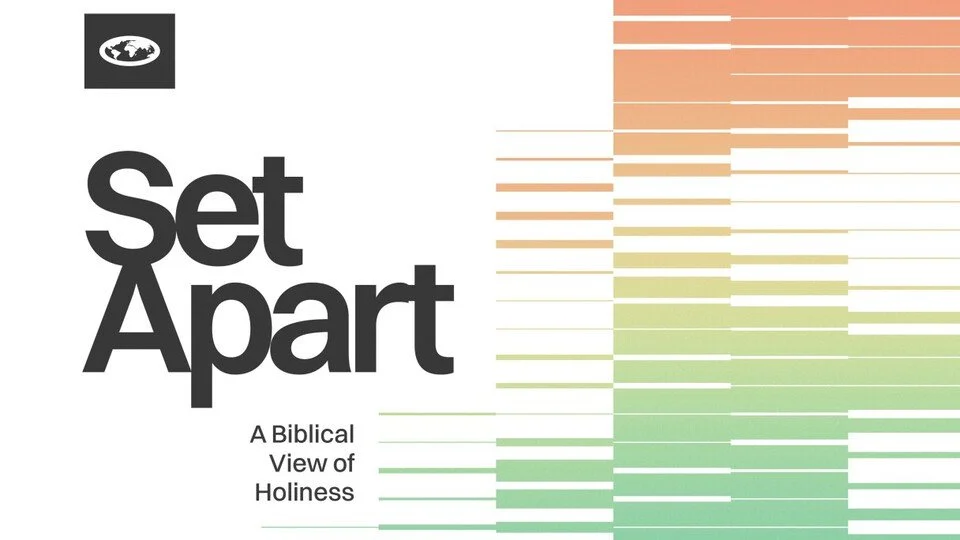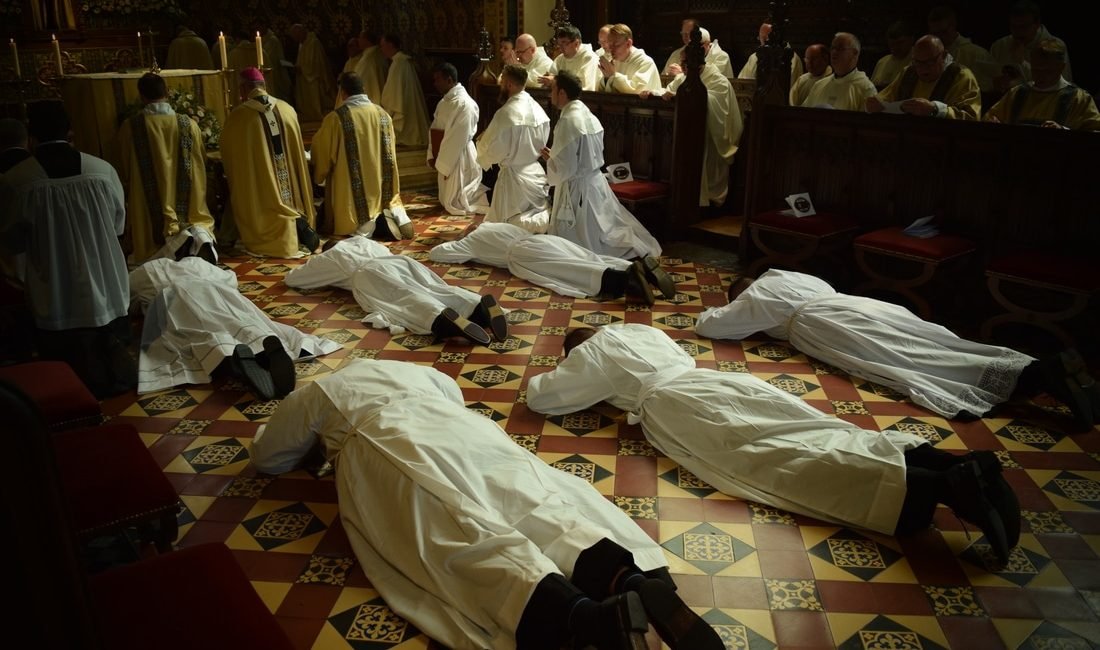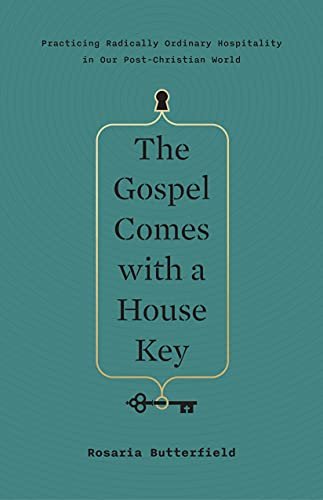Set Apart: Holiness Lost
A Biblical View of Holiness
Notes prepared by Pastor Brian Taylor
Focus: Sin caused man to lose what could only be found in God.
Genesis 3:1–8, 21 ESV
1 Now the serpent was more crafty than any other beast of the field that the Lord God had made.
He said to the woman, “Did God actually say, ‘You shall not eat of any tree in the garden’?”
2 And the woman said to the serpent, “We may eat of the fruit of the trees in the garden, 3 but God said, ‘You shall not eat of the fruit of the tree that is in the midst of the garden, neither shall you touch it, lest you die.’”
4 But the serpent said to the woman, “You will not surely die.
5 For God knows that when you eat of it your eyes will be opened, and you will be like God, knowing good and evil.”
6 So when the woman saw that the tree was good for food, and that it was a delight to the eyes, and that the tree was to be desired to make one wise, she took of its fruit and ate, and she also gave some to her husband who was with her, and he ate.
7 Then the eyes of both were opened, and they knew that they were naked. And they sewed fig leaves together and made themselves loincloths.
8 And they heard the sound of the Lord God walking in the garden in the cool of the day, and the man and his wife hid themselves from the presence of the Lord God among the trees of the garden.
21 And the Lord God made for Adam and for his wife garments of skins and clothed them.
The Text in the Story of Redemption
Up to this point in the narrative, there has been no mention of sin, brokenness, or anything unholy in God’s creation. The consistent response of God to his creation in Genesis 1 is,
“And God saw that it was good.”
When we reach Genesis 1:31, “God saw that it was very good.”
However, from Genesis 1 and 2 to Chapter 4 onward, the question arises: How did we get from a good creation to murder, wickedness, pride, and all manner of unholiness? Genesis 3 gives us the context of the rest of Genesis and all history.
We refer to Genesis 3 as the Fall, and if you have grown up in church, it is easy to rush past this story with a few general details:
• Satan deceived Eve.
• Eve and Adam ate the forbidden fruit and disobeyed God.
• God sent them out of the Garden.
However, if we slow down, we will notice some details of this story that will shape our lives and reveal something lost.
Textual Exegesis
Last week we saw how Scripture reveals God’s holiness. Holiness is a weighty word. When we see angels and other heavenly creatures worshiping God in Revelation 4:8, they cry,
“Holy, Holy, Holy is the Lord God Almighty.”
When we say that God is holy, we recognize that he is set apart, unlike anything or anyone else. In this message, we will examine how sin has affected our ability to relate to a holy God and understand what was lost in what we know as “The Fall.” 3:1: Now the serpent was more crafty than any other beast of the field that the Lord God had made.
The serpent is part of the created order, made by God but not equal to God. In Revelation, we learn that the serpent is the devil (Revelation 12:9). He is crafty (arum [Hebrew] cunning or shrewd, usually in a negative sense) with a deceiving nature, and he plans to deceive Eve.
The first thing we hear from the serpent is, “Indeed, has God said, you shall not eat from any tree of the garden?”
This statement implies that the serpent was aware of God’s command in Genesis 2. Here we see that the true motive of the serpent is to question God’s Word.
3:2, 3: He said to the woman, “Did God actually say, ‘You shall not eat of any tree in the garden’?”
And the woman said to the serpent, “We may eat of the fruit of the trees in the garden, but God said, you shall not eat of the fruit of the tree that is in the midst of the garden, neither shall you touch it, lest you die.’”
Eve adds something not found in God’s command in Genesis 2:17, indicating that she was familiar with the command even though it was spoken directly to the man. She recognizes God’s authority to command because she deemed his words as binding, at least at first.
3:4, 5: But the serpent said to the woman, “You will not surely die. For God knows that when you eat of it your eyes will be opened, and you will be like God, knowing good and evil.”
The conversation is not over yet; the serpent still has deception planned. The tactics of the serpent still ring true today: question God’s words, minimize the cost of disobedience, and paint a false reality of freedom apart from God.
The devil used three strategies against our first parents.
# 1: Undermine the word of God: “Has God said . . .” This question challenged God’s truthfulness.
# 2: Deny the reality of divine judgment: “You will surely not die . . .” This statement challenged God’s authority—especially his authority to execute judgment.
# 3: Attack the character of God: “For God knows . . . your eyes will be opened . . .” This statement challenged God’s goodness.
3:6: So when the woman saw that the tree was good for food, and that it was a delight to the eyes, and that the tree was to be desired to make one wise, she took of its fruit and ate, and she also gave some to her husband who was with her, and he ate.
Now the story turns for the worse: Eve considers what she once knew was restricted. The text highlights the positive attributes of the tree with these adjectives: good, delightful, and desirable. It’s as though Eve had never noticed these attributes before. She trusted what she saw and what she desired above what God said. Not only did she sin, but she also passed it on to her husband, and he ate.
3:7: Then the eyes of both were opened, and they knew that they were naked. And they sewed fig leaves together and made themselves loincloths.
Their eyes were opened to the point that now they recognized they were naked. There was an innocence lost.
This shows that the serpent was not entirely dishonest about the fact that their eyes would be opened (verse 5).
Satan doesn’t always approach us with outright lies but rather with little half-truths that cause us to entertain what we know is forbidden.
3:8: And they heard the sound of the Lord God walking in the garden in the cool of the day, and the man and his wife hid themselves from the presence of the Lord God among the trees of the garden.
This could be God physically walking in some anthropomorphic state or his presence felt and heard through the wind. Either way, Adam and his wife recognized it was the Lord and hid. Adam later explains in verse 10 why he did this, “I heard the sound of You in the garden, and I was afraid because I was naked.” Interestingly, God’s eyes were not the ones that were opened. Their shame was not the result of God seeing them; it was the result of them seeing themselves with sin in the picture.
1. What We Lost through Sin
To understand what was lost through Adam’s cosmic decision, let’s examine what mankind had before it:
Genesis 1:26 God made them in his image and likeness.
Genesis 1:26 God created them to rule over his creation.
Genesis 1:27 God commissioned them to be fruitful, multiply, and subdue creation.
Genesis 1:29 God provided food for him.
Genesis 1:31 God placed them in a very good creation.
Genesis 2:8 God placed them in a luxurious garden.
Genesis 2:16–17 God gave them permission to eat freely except from one tree.
But sin changed everything.
• We lost our connection with God , and we now experience separation.
Behold, the Lord’s hand is not shortened, that it cannot save, or his ear dull, that it cannot hear; but your iniquities have made a separation between you and your God, and your sins have hidden his face from you so that he does not hear. (Isaiah 59:1–2)
• We lost our right standing with God, and we now are children of wrath.
And you were dead in the trespasses and sins in which you once walked, following the course of this world, following the prince of the power of the air, the spirit that is now at work in the sons of disobedience—among whom we all once lived in the passions of our flesh, carrying out the desires of the body and the mind, and were by nature children of wrath, like the rest of mankind.
(Ephesians 2:1–3)
• We lost our purpose, and we now go our own way.
All we like sheep have gone astray; we have turned—everyone—to his own way. (Isaiah 53:6)
• We lost our provision, and we now sweat for our existence.
Cursed is the ground because of you; in pain you shall eat of it all the days of your life; thorns and thistles it shall bring forth for you; and you shall eat the plants of the field. By the sweat of your face you shall eat bread. (Genesis 3:17–19)
• We lost our confidence, and we now experience shame.
Then the eyes of both were opened, and they knew that they were naked. And they sewed fig leaves together and made themselves loincloths. (Genesis 3:7)
• We lost our connection with others and now experience alienation and broken relationships.
He has put my brothers far from me, and those who knew me are wholly estranged from me. My relatives have failed me, my close friends have forgotten me. The guests in my house and my maidservants count me as a stranger; I have become a foreigner in their eyes. (Job 19:13–15)
• We lost our awareness of how terrible sin is, and we now attempt to justify our sin.
“There is not one man who fully knows the evil of sin. Men who have lived underground all their lives do not know how dark the mine is, nor can they know it until they stand in the blaze of a summer’s noon. This is one of the most deplorable results of sin. It injures us most by taking from us the capacity to know how much we are injured. O you demon, Sin! You do not only poison us but make us imagine our poison to be medicine—you defile us and make us think ourselves the more beautiful. You slay us and make us dream that we are enjoying life.”
-Charles Spurgeon, The Monster Dragged to Light, February 9, 1873
The man said, “The woman whom you gave to be with me, she gave me fruit of the tree, and I ate.”
(Genesis 3:12)
[The one thing that was not lost because of sin was God’s pursuit of fallen humanity. This leads us to our second point.]
2. What We Gained through Christ
“The essence of sin is man substituting himself for God, while the essence of salvation is God substituting himself for man. Man puts himself where only God deserves to be; God puts himself where only man deserves to be.”
-John Stott, The Cross of Christ
Fortunately, the Fall of mankind is not the end of the story.
And the Lord God made for Adam and for his wife garments of skins and clothed them. (Genesis 3:21)
In Genesis 3:7, Adam and Eve attempted to cover themselves. But God clothed them by making garments of skin crafted from a dead animal. Blood was shed to cover Adam and Eve’s sin. This is the foreshadowing of how God would heal humanity. In our fallen state, we try to create our own coverings to deal with the shame, fear, and brokenness caused by sin. However, just as with Adam, our attempts to cover our own sin is inadequate so God had to do for us what we could not do for ourselves. Now, everything lost in sin is restored in Christ.
• He restores our connection to him.
In this the love of God was made manifest among us, that God sent his only Son into the world, so that we might live through him. In this is love, not that we have loved God but that he loved us and sent his Son to be the propitiation for our sins. (1 John 4:9–10)
• He restores our right standing with him.
For our sake he made him to be sin who knew no sin, so that in him we might become the righteousness of God. (2 Corinthians 5:21)
• He restores our purpose.
But one thing I do: forgetting what lies behind and straining forward to what lies ahead, I press on toward the goal for the prize of the upward call of God in Christ Jesus. (Philippians 3:13–14)
• He restores his provision for us.
J. R. R. Tolkien writes: “Such was the virtue of the land of Rivendell that soon all fear and anxiety was lifted from their minds. The future, good or ill, was not forgotten, but ceased to have any power over the present. Health and hope grew strong in them, and they were content with each good day as it came, taking pleasure in every meal, and in every word and song.”
(The Fellowship of the Ring, 287)
The good news of the life, death, and resurrection of Christ is of such a quality that the past, present, or imagined future, “good or ill, are not forgotten, but cease to have any power over the present.” We could write pages of application on this. If you are prone to worry about tomorrow, you need the gospel. If you tend to fear people or circumstances, you need the gospel. If you are paralyzed by regret or plagued by guilt, you need the gospel. Only the gospel can free us from these things.
And my God will supply every need of yours according to his riches in glory in Christ Jesus.
(Philippians 4:19)
• He restores our confidence before him.
Therefore, brothers, since we have confidence to enter the holy places by the blood of Jesus, by the new and living way that he opened for us through the curtain, that is, through his flesh, and since we have a great priest over the house of God, let us draw near with a true heart in full assurance of faith, with our hearts sprinkled clean from an evil conscience and our bodies washed with pure water. (Hebrews 10:19–22)
• He restores our relationships.
And they devoted themselves to the apostles’ teaching and the fellowship, to the breaking of bread and the prayers. And all who believed were together and had all things in common. (Acts 2:42, 44)
Four Questions
1. How is God glorified in the text?
The text glorifies God through the revelation of his authority, holiness, and mercy. As we understand and respond to these attributes, we bring him glory by acknowledging his greatness, embracing his provision, and participating in his work.
2. How is our heart transformed in the text?
The text challenges us to acknowledge the consequences of sin, recognize our need for a Savior, and embrace the restoration offered through Jesus Christ. As we grasp the implications of the Fall and the redemptive work of Christ, our hearts are filled with gratitude, worship, and a renewed desire to walk in obedience to God.
3. How is the mission accelerated in the text?
The text advances God’s mission by exposing our need for a Savior and explaining the redemption available in Christ. It highlights the contrast between what was lost in the Fall and what is regained in Christ, motivating us to actively participate in the mission of redemption.
4. What is the gospel application of the text?
The text applies the gospel by showing us the severity of sin and our inadequacy to resolve it on our own. This encourages us to embrace the salvation offered through Christ, live out our new identity as redeemed children of God, and share the gospel with others.
Second City Church - Pastor Rollan Fisher

































